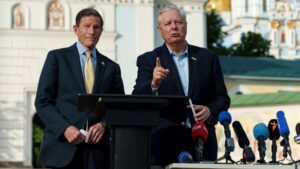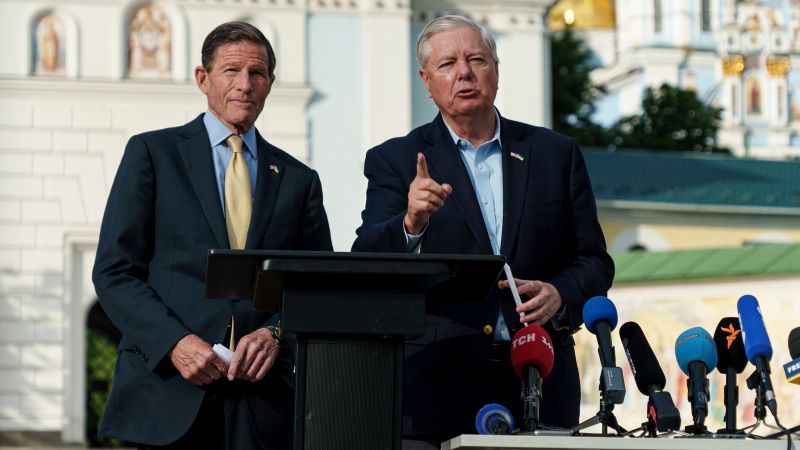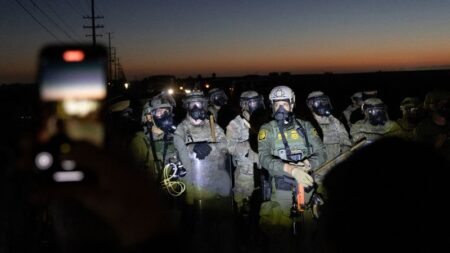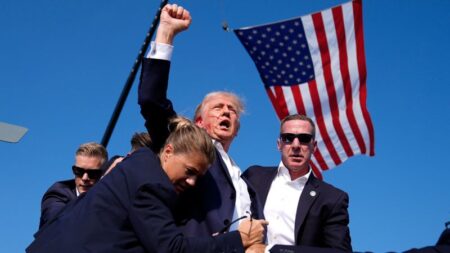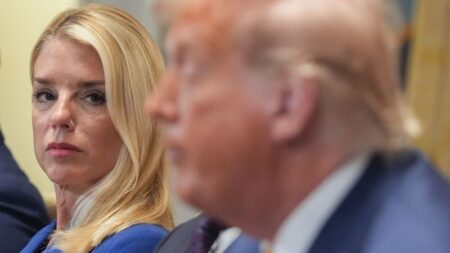In a rapidly evolving political landscape, bipartisan support is burgeoning within the United States Senate for an aggressive approach toward Russia as its military actions in Ukraine escalate. Republican Senator Lindsey Graham of South Carolina and Democratic Senator Richard Blumenthal of Connecticut are at the forefront of this movement, calling for prompt action to curb Moscow’s war efforts in Ukraine. Their initiative includes the introduction of a significant bipartisan bill aimed at imposing robust sanctions on Russia, which they assert could serve as a “sledgehammer” to compel President Donald Trump to decisively address the ongoing conflict.
The proposed legislation allows for the implementation of staggering tariffs—specifically, a 500% tariff on imports from countries that continue to buy Russian uranium, gas, and oil. This measure has gained traction in the Senate as Trump has indicated a willingness to escalate U.S. actions against Russia. In a recent interview on CBS’ “Face the Nation,” Graham enthusiastically shared the bipartisan support for their sanctions proposal, revealing that they have attracted 85 co-sponsors in the Senate. He emphasized the necessity of providing President Trump with the tools needed to target the economic underpinnings of the Kremlin and its allies, particularly those enabling the conflict under Russian President Vladimir Putin’s regime.
The backdrop to these developments is critical. Graham and Blumenthal have just returned from Rome, where they participated in a conference centered on Ukraine’s recovery efforts. During their meetings with Ukrainian President Volodymyr Zelensky and other European leaders, they were informed of the expectation that any forthcoming U.S. sanctions must be “tough and rigorous” if there is to be any change in Russia’s behavior. This sentiment underscores the urgency felt by both U.S. lawmakers and their European counterparts as they analyze the implications of Russia’s military actions.
Tragically, the recent escalation in violence was starkly illustrated by reports that Russia conducted its largest drone assault against Ukraine during the previous week, unleashing 728 drones and 13 missiles in a coordinated strike that led to fatalities among civilians. This timely reminder of the ongoing conflict further fuels the push for harsher sanctions against Russia in the U.S. Senate.
Senate Majority Leader John Thune has indicated that he anticipates bringing the bill to a vote before the end of the month, contingent upon Trump’s endorsement—a critical factor given the president’s significant influence over his party. Additionally, House Speaker Mike Johnson expressed a readiness to advance this pivotal legislation to the House floor should it pass in the Senate, noting a strong appetite for stringent sanctions within the House.
However, important questions remain regarding Trump’s position on the legislation. Despite support from Graham, Trump has refrained from a full public endorsement, merely stating that he is “looking” at the bill and conditionally suggesting that its progress will be at his discretion. This uncertainty persists in the context of Trump’s recent announcements of military assistance to Ukraine, including a deal to send U.S. weapons through NATO and the potential arrival of an additional Patriot air defense system.
In the coming days, Trump plans to make a significant announcement regarding Russia and is scheduled to meet with NATO Secretary General Mark Rutte, which could have implications for future U.S. military and economic strategies against Russia. Meanwhile, Graham and Blumenthal anticipate discussing ways NATO allies can utilize seized Russian assets to support Ukraine in their efforts.
As the political machinery gears up, Graham has underscored the importance of seizing Russian assets as part of a comprehensive strategy to bring Putin to negotiations. He confidently reiterated that the international community, including European nations, is considering how to leverage these assets to assist Ukraine, urging the U.S. to join in on this initiative.
The stakes are high. Graham and Blumenthal believe that Putin has miscalculated by underestimating NATO’s resolve and the unity of its members in opposing his military aggression. The Senate’s potential passage of this sanction package would represent a historic turning point in U.S. foreign policy, empowering Trump with new tools to combat Russian aggression, effectively challenging the very foundation of Putin’s war strategy.

